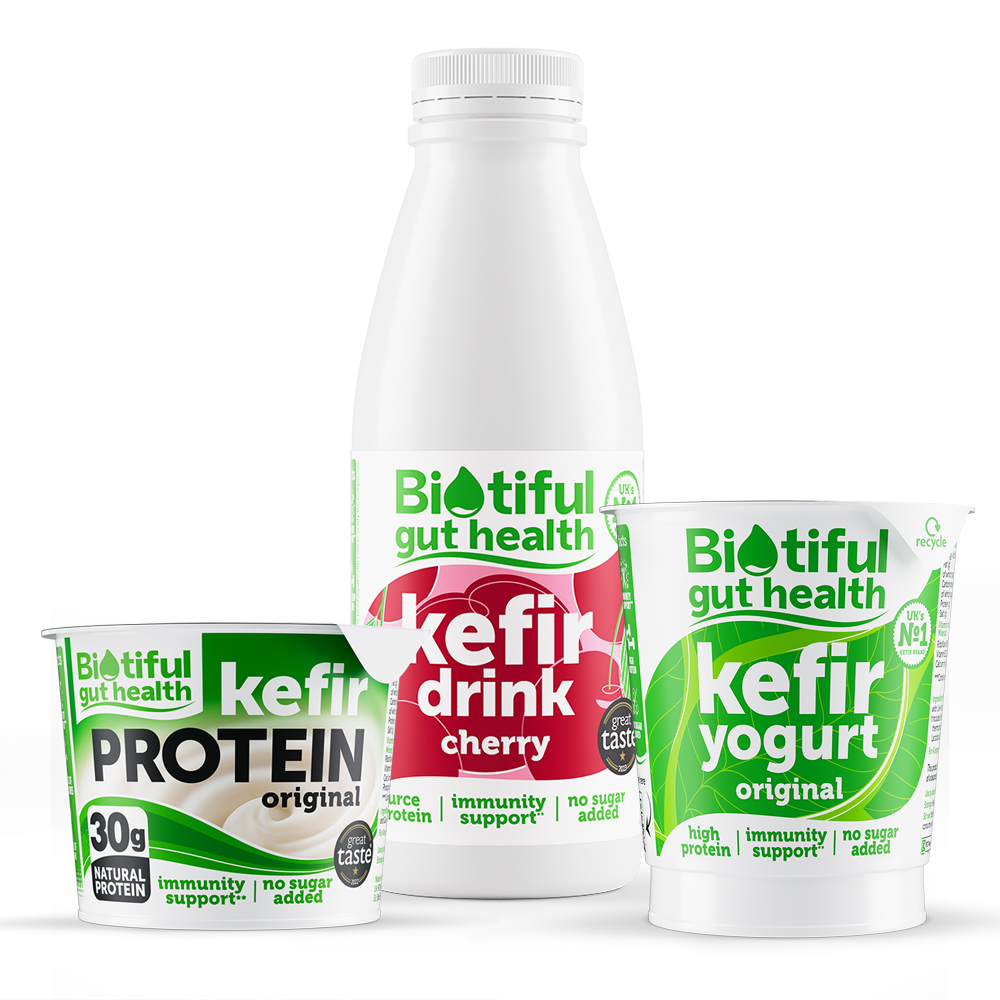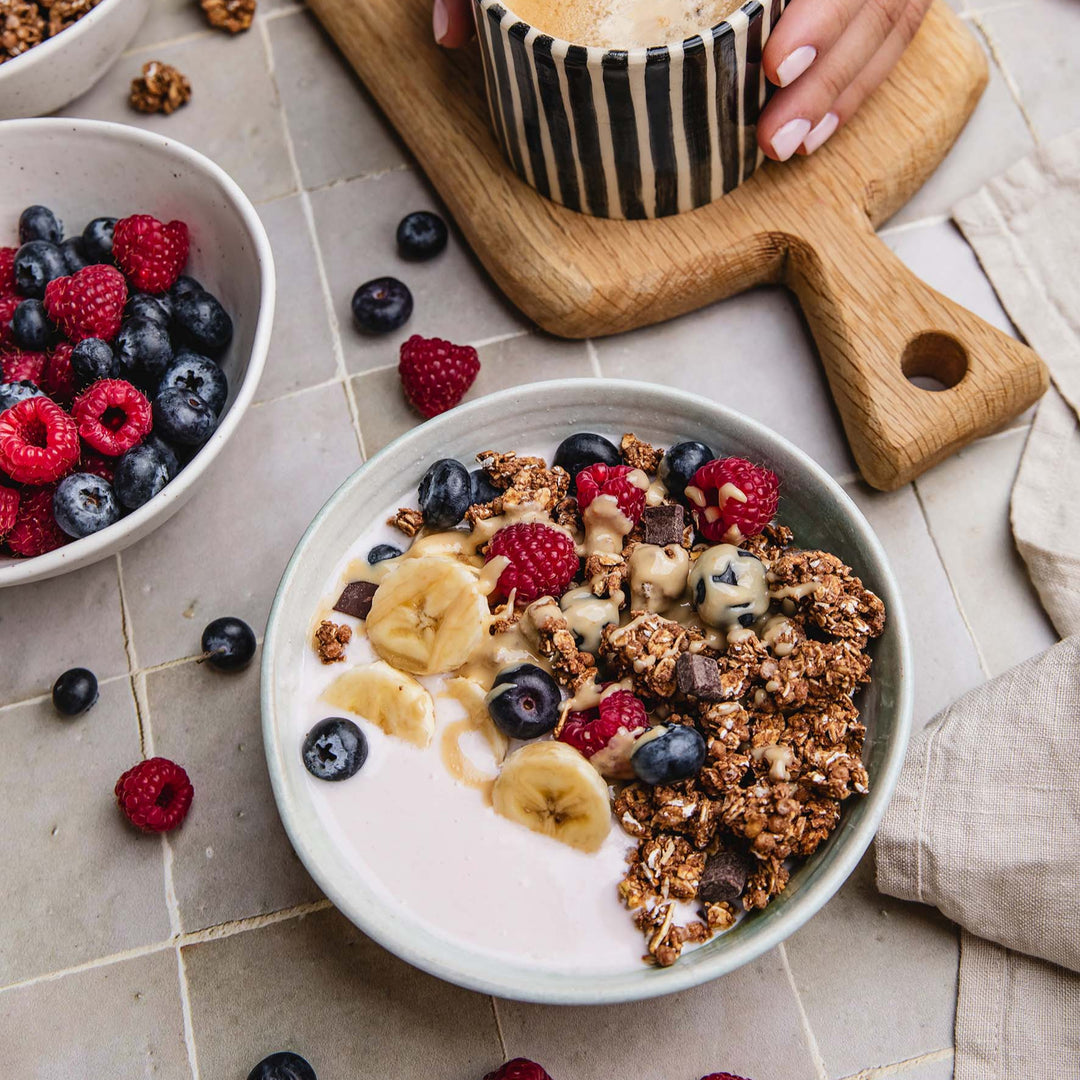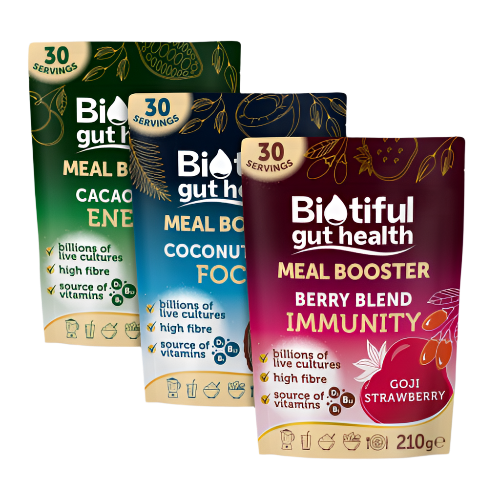IBS: 13 Million People Suffer with This Gut Health Disease

According to the NHS, around 13 million people suffer with IBS which stands for ‘Irritable Bowel Syndrome’. IBS is characterised as a gastrointestinal condition in which the patient will experience abdominal pain, discomfort, and disturbances in their bowel habits or movements.
Although there is no exact ‘cure’ for this common condition, there may be certain lifestyle measures outlined below which can reduce symptoms for some people and make IBS more manageable day to day.
1. Eating more fermented foods such as kefir: fermented foods like kefir or sauerkraut contain beneficial probiotics in them that when consumed can support more microbial diversity in the gut. Biotiful Kefir is my brand of choice because it has no added nasties, unlike so many other brands on the market, and it tastes great! We now know that a healthy gut is one that has lots of different types of beneficial bacteria, introduced by the food we eat mostly. Kefir in particular has been shown in some studies to help bring down inflammation within the digestive tract, as well as improving stool consistency in some people with IBS, making it a useful tool for some people suffering with the condition.
2. Reducing stress: It is known that stress can have a profound effect on the state of our gut, reshaping the landscape there and even increasing gut wall permeability. Stress can also cause a decrease in healthy gut bacteria, and boost harmful bacteria there which can trigger symptoms of IBS. In order to support a healthier gut which can aid in managing IBS better, stress management techniques such as walking outside, taking time for mindfulness, activities like breathwork, reducing caffeine, and getting better quality sleep are recommended.
3. Keep hydrated: Hydration is one of my best hacks when it comes to a healthier gut in general, but especially if you suffer with IBS. With IBS, many of those who suffer with the condition may experience regular loose stools which can mean your body loses more water than usual and hydrating properly around these times is crucial. Drinking enough water can also help with reducing constipation risk and play a role in reducing bloating too- so at least 8 glasses of water a day is needed, more if you are sweating excessively, experience diarrhoea, or are in a hot climate.
4. Soluble fibre: There are 2 types of fibre needed for a healthy gut; soluble and insoluble. Both are needed for healthy digestion, with a total of 30g needed per day. Some people have reported that eating more soluble fibre over insoluble has been more suitable for them when living with IBS. Soluble fibre includes foods like fruits and vegetables (without the skin), such as apples, pears, carrots, parsnips, oats, cooked cauliflower and avocado.
5. Know your triggers: working with a qualified nutritionist or dietitian can be a helpful step in figuring out what triggers your IBS symptoms. These triggers may change over time, but working with a professional can help with identifying them easier.


















